
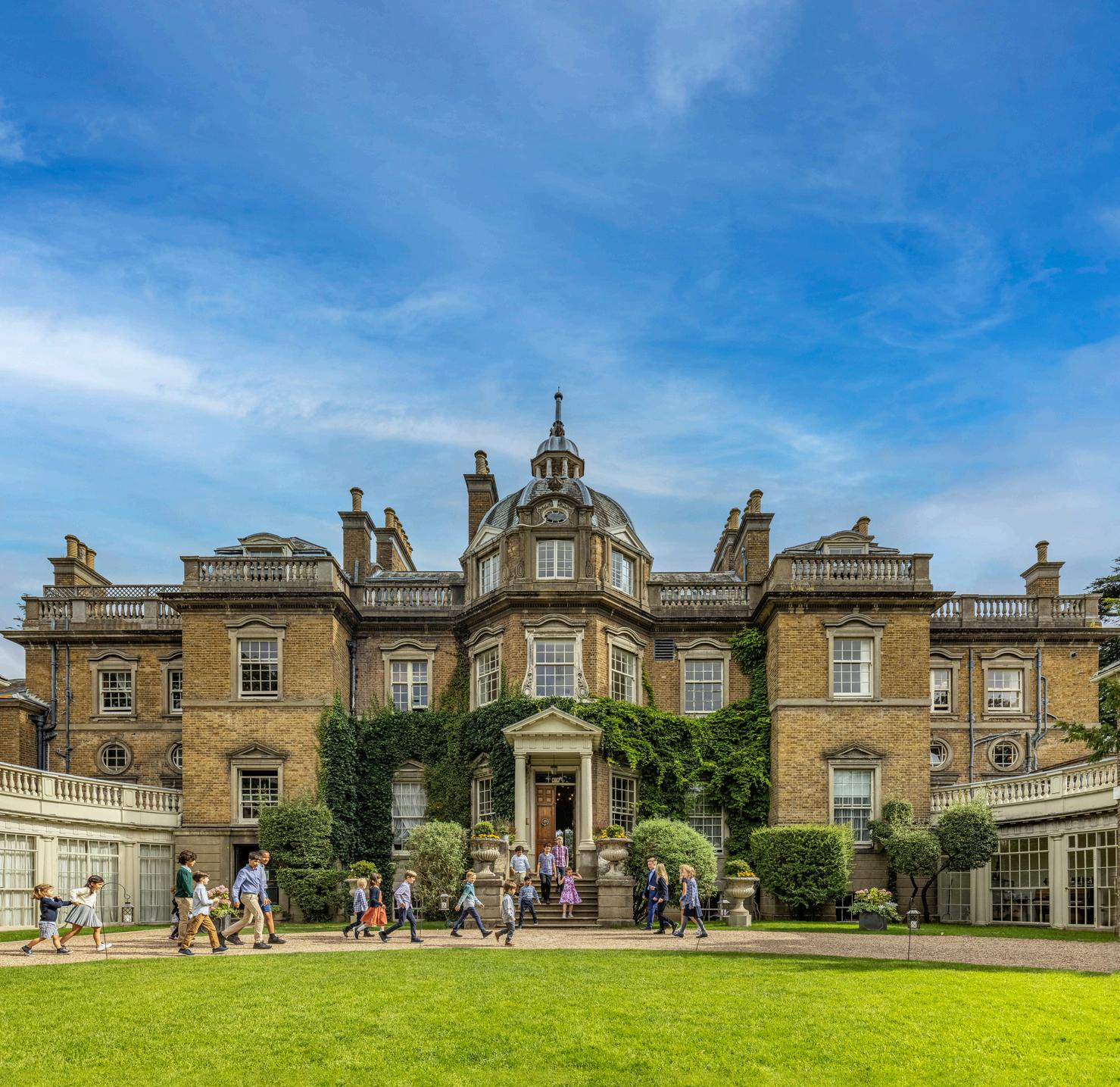
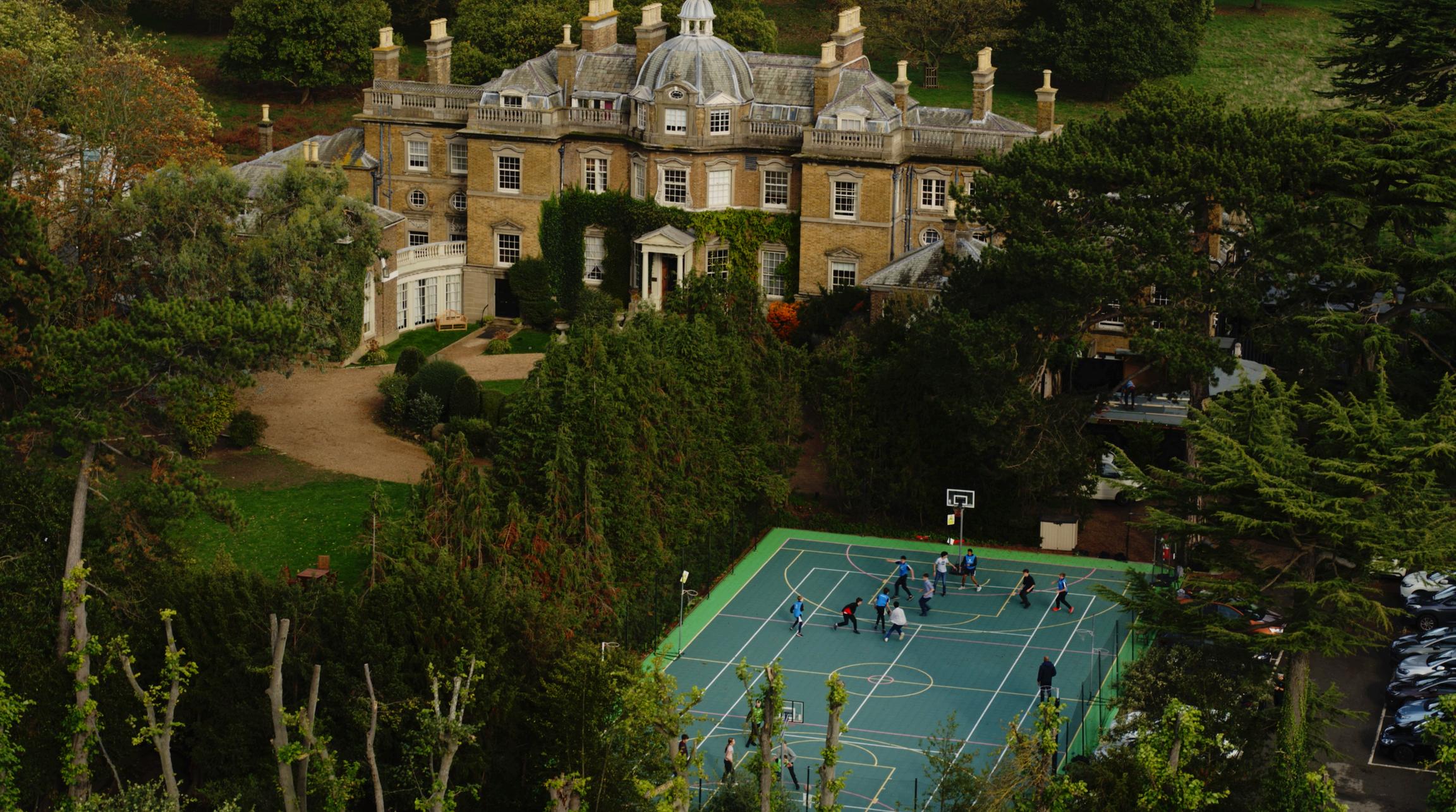

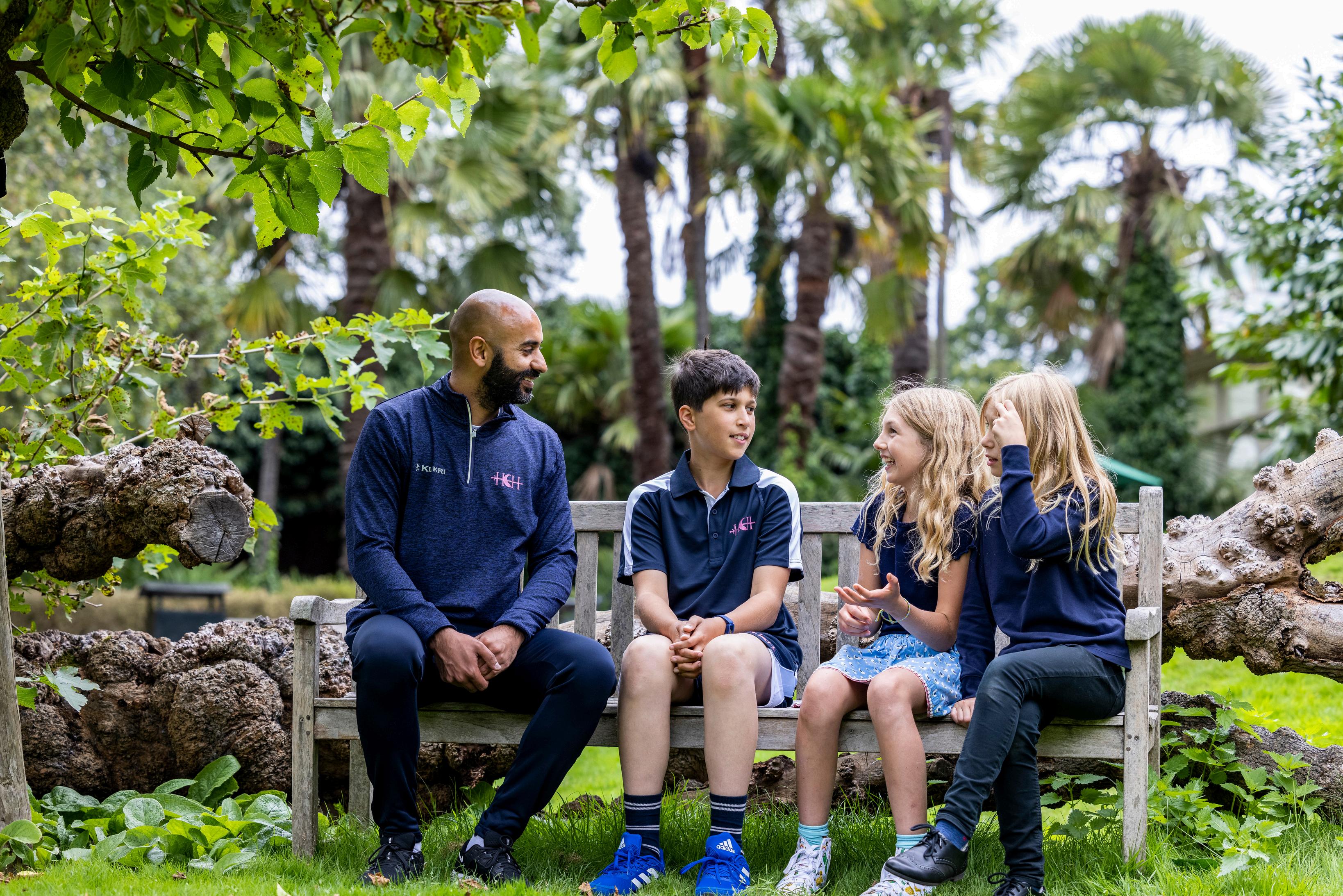








AAt Hampton Court House Senior, we take pride in the breadth and depth of our curriculum. Our commitment to providing an exceptional educational experience for your child is at the heart of everything we do. We know that every child is unique, and so we tailor our approach to ensure that each individual thrives academically, socially, and personally. While our curriculum is carefully planned, we are also strong believers in adaptive teaching that responds to the needs and interests of our students. Therefore, whilst our core curriculum is outlined here for all students, the way in which it is delivered and the depth in each subject will vary to ensure your child gets the very best educational experience. Lessons are designed to be not only informative but also interesting, engaging, supportive, and challenging. Our teachers enable children to actively participate in lessons, learn, and demonstrate new knowledge, skills, and ideas. We believe in empowering our students to shape their own voices within our dynamic yet nurturing community.
The curriculum for Years 7 – 9 at Hampton Court House is designed to deepen children’s knowledge and understanding while developing approaches to critical thinking, creativity, and independence. We aim to provide a challenging and stimulating learning environment that encourages children to explore their interests and develop their strengths whilst creating a setting where mistakes are allowed, and questions are welcomed. Our intent is to prepare children for GCSE’s, A levels and beyond with a skillset that allows them to make the most of any opportunities afforded to them, taken with a global perspective.
Our curriculum implementation for Years 7 – 9 involves a diverse range of teaching strategies and learning experiences. We emphasise subject-specific expertise and interdisciplinary connections through both lessons and a comprehensive programme of extra-curricular activities to ensure both breadth and depth that both enrich the curriculum and promote intellectual curiosity. Teachers use formative and summative assessments to guide instruction and provide constructive feedback on a half termly basis whilst additionally imbuing in them the techniques needed ultimately to respond to GCSE style questions. Where needed, we also offer open subject clinics to help address individual learning needs and foster academic excellence.
The impact of our curriculum for Years 7 – 9 is reflected in the high level of academic achievement and personal development of our students. Typically, at least one grade higher compared to matched peers nationally at GCSE. They demonstrate proficiency in advanced subject areas, strong analytical and research skills, and a readiness to tackle complex challenges whilst not being afraid to make mistakes. Our students show increased confidence, leadership abilities, and a sense of community responsibility. They immerse themselves in Drama and the Arts, performing, creating, and representing the school in many ways. Ultimately, they are confident to embark on their GCSE programmes with a sense of purpose and belief, safe in the knowledge they will be supported as they enter then next phase of their education.
Katy Deacon Head of Secondary kde@hchnet.co.uk
Eldon
Fayers Assistant Principal | Teaching & Learning efa@hchnet.co.uk
Nick Edwards Assistant Principal | Data & Assessment ned@hchnet.co.uk
Paul Pearce
Deputy Head | Operations & Academic pgp@hchnet.co.uk
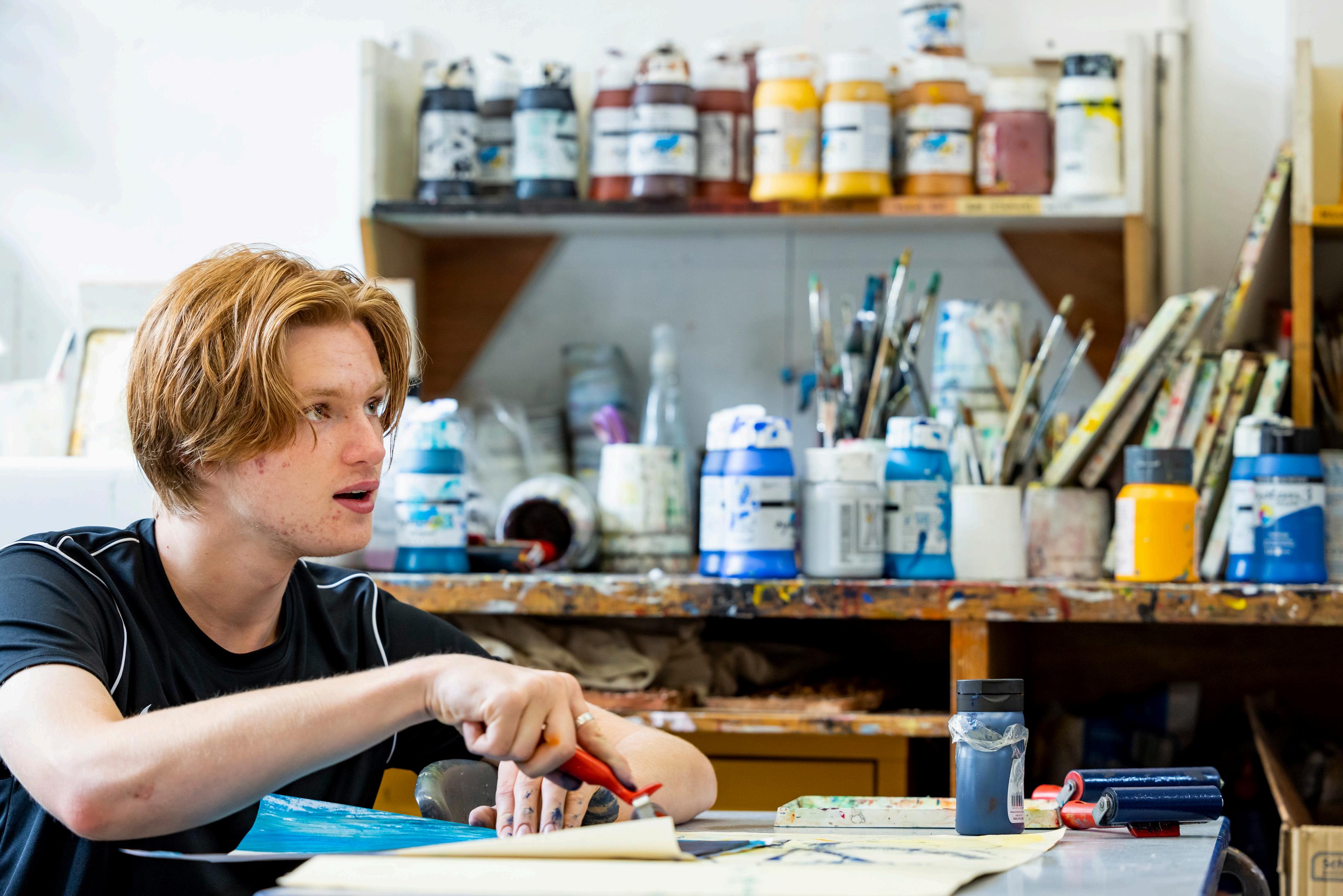

This term the students will create a kinetic sculpture based on the wire mobiles of Alexander Calder. They will learn to use cutting tools and structural materials and will employ basic principles of physics to manipulate mass and length, achieving a delicately balanced structure. Students will design and paint the individual elements in their mobile.
Student work is assessed during the lessons with practical help offered when necessary. Understanding is assessed gradually because students need to build on their previous knowledge, and quick challenges are introduced to check this. Students are also encouraged to self-assess through refining their own work and reflecting on each other's. Their memory and understanding of processes are assessed through write ups which they are asked to document in their sketchbooks at the end of each project.
Term
Autumn 1
Autumn 2
Spring 1
What are we studying?
One-point, two-point and three-point geometric perspective drawing.
Introduction to colour theory
Mixing glazes and direct mixtures. Using specific colour terms correctly Making lino prints as a vehicle to explore their understanding of the appearance of colours.
Two-layer lino print.
Block 1. creating a visually balanced black and white design
Block 2. creating a colour gradient block Combining the two accurately This project varies in length depending on the group.
Spring 2 Continuation

Term
What are we studying?
Summer 1 A 3D project. Either . a wire and Modroc insect project, based on French sculptor Edouard Martinet’s work . or kinetic sculpture based on the wire mobiles of Alexander Calder. The students learn to use tools and structural materials, and with the mobile project they employ basic principles of physics learning to manipulate mass and length to achieve a delicately balanced structure.
Sometimes the students get a chance to work as part of a team contributing to drama productions.
Summer 2 Continuation
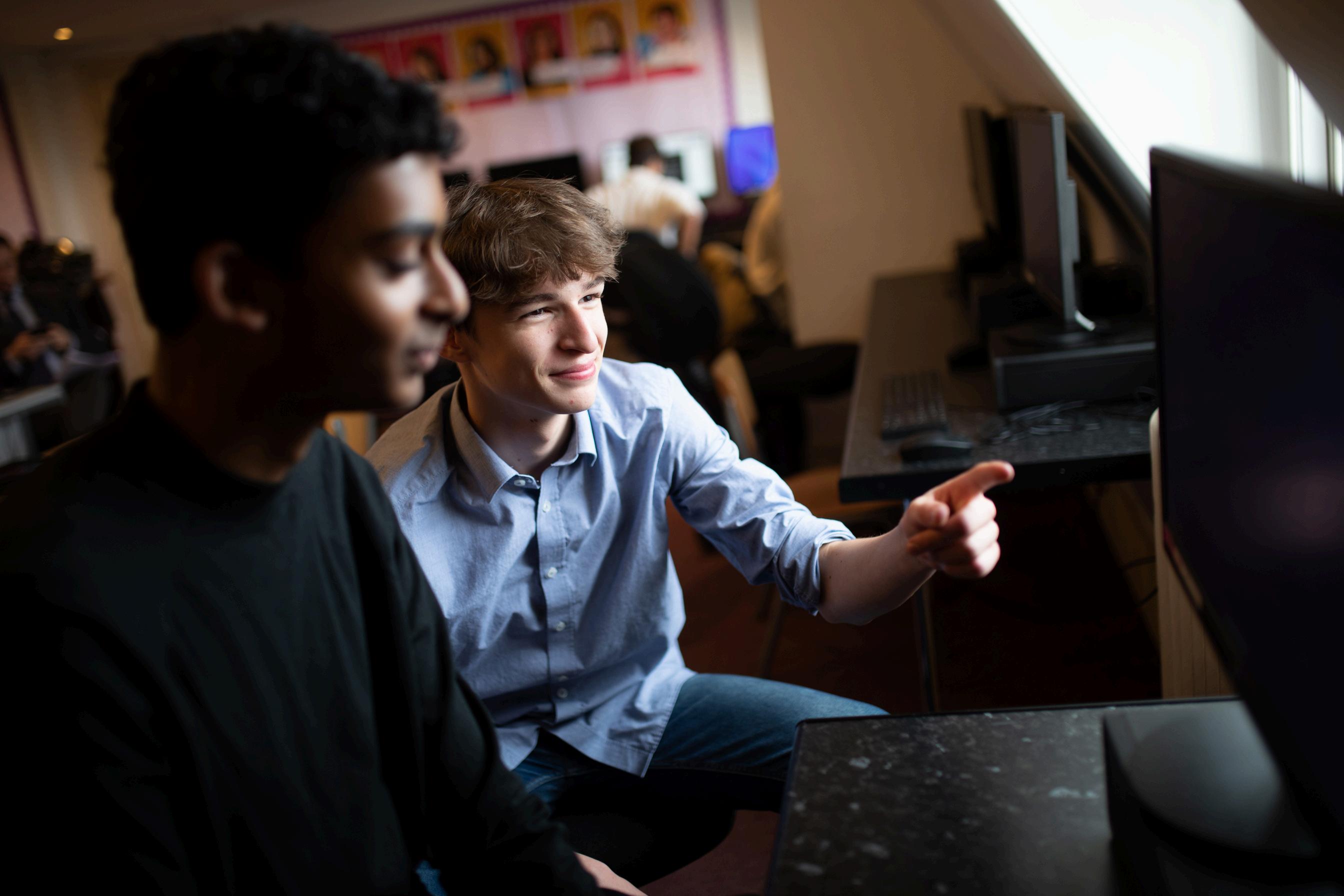

The syllabus in Year 7 includes materials and concepts recommended by the National Centre for Computing Education for Key Stage 3, as well as topics and resources from other established and respected educational organisations. The activities alternate each half-term between predominantly theory topics and then more practical applications. This ensures the students have hands-on experience of early programming concepts, as well as building an understanding of the wide scope and complexity of the subject. In the theory periods, gamified learning will also be used to illustrate and embellish the topics to maintain student engagement, and in the more practical sessions, students will be required to maintain a log of their activities, which will form part of their assessment.
How it will be assessed
Each half term there will be a mini test on the topics covered that half term. These will take place online during normal lessons. At the end of the year there will be an end of year exam covering all the topics from the whole year. This will be during the school’s assessment week. Throughout the year, each student’s written work - completed entirely in Teams/Class Notebook – will be considered in the assessment of their progress.
Term
Autumn 1
Autumn 2
Spring 1
What are we studying?
Using computers safely: After the set-up of students on the school systems, the first few weeks will cover passwords, social networking, data safety, email use, web searches and interpreting search results. Interspersed with these topics, we will be solving algorithmic puzzles online.
As half-term approaches and passes, classes will start looking more closely at algorithms using BBC Microbits, and examining the concepts of input – process - output, including sensors and devices.
In the new year students will be studying what a computer is: hardware and software, processing, CPU and other components, memory, binary, storage.
Spring 2 In the second half of the spring term, classes will be learning HTML and CSS, and creating a website. We will also look at internet search.
Summer 1 After Easter, students will study networks, the internet and the World Wide Web.
Summer 2 As half term approaches and passes, students will start programming using Edublocks with Python in the back-end.
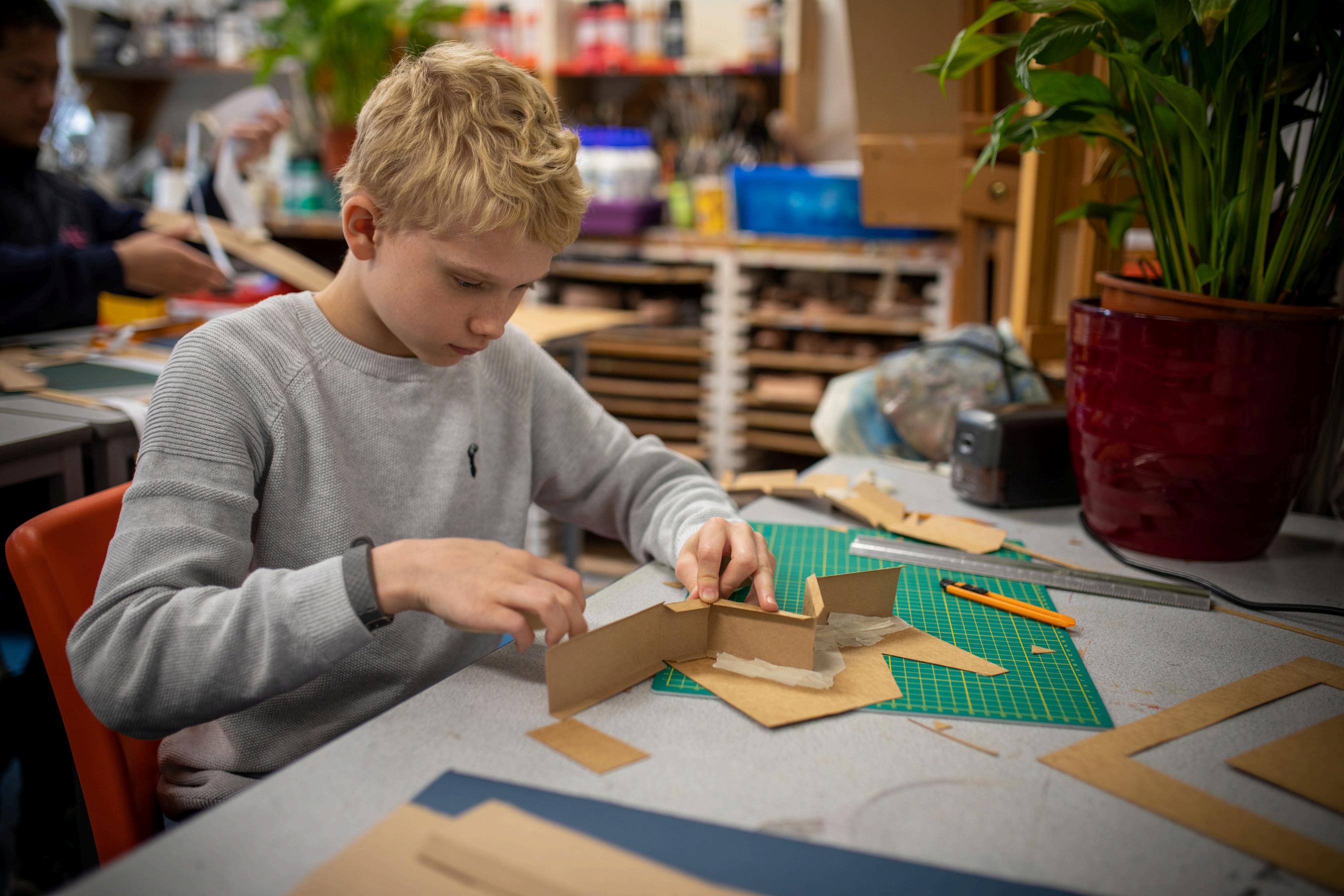

Year 7 Curriculum Overview
In the summer term, Year 7 students will embark on a Pavilion Design Project, where they will develop an understanding of real-life design briefs and the importance of responding to client needs. Through research and exploration, students will generate realistic design proposals, considering key design specifications such as environmental concerns, client values, cost, and safety.
To communicate their ideas effectively, students will explore a range of design communication techniques, refining and combining these skills to create their final pavilion design. As part of their project, students will gain an introduction to materials and technologies relevant to pavilion construction. They will follow the iterative design process, continuously developing, testing, and evaluating their ideas to improve their designs. Students will also study specialist technical principles, particularly the sources, origins, and properties of papers and boards, using these materials to create scaled models of their pavilion concepts while demonstrating safe working practices in the workshop.
In the second half of the term, students will begin learning Blender, a widely used industry-standard 3D design software, to bring their concepts to life digitally. They will also be introduced to 3D printing technology, gaining insight into modern manufacturing techniques. Throughout the project, students will document their work in an online PowerPoint portfolio, developing essential presentation, evaluation, and technical skills that will support their learning in Design & Technology.
Autumn 1
Spring 1
Core technical principles
New and emerging technologies
Energy generation and storage
Developments in new materials
Specialist technical principles
Forces and stresses
Ecological and social footprint
Selection of materials and components
Designing and making principles
Investigation, primary and secondary data
Summer 1
Environmental, social and economic challenges
The work of others
Design strategies
Communication of design ideas
Autumn 2
Spring 2
Core technical principles
Systems approach when designing
Mechanical devices
Materials and their working properties.
Specialist technical principles
Using and working with materials
Surface treatments and finishes
Specialist techniques and processes
Designing and making principles
Prototype development
Material management
Summer 2
Specialist tools and equipment
Specialist techniques and processes
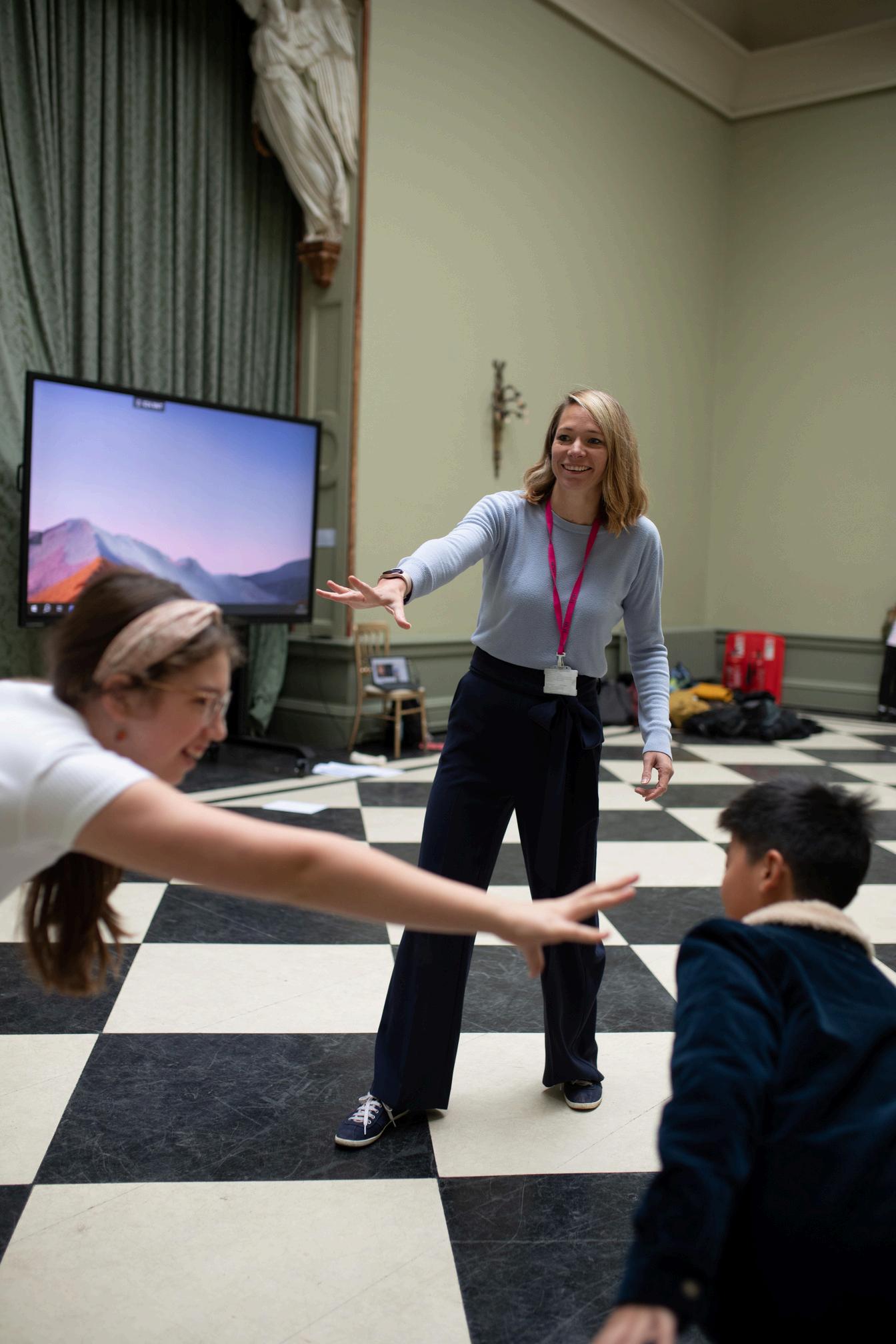

As part of their drama studies, students are working on a performance of a short Shakespeare play, which will be presented to parents on Wednesday 18th June Through this project, students will develop a deeper understanding of Shakespeare’s plot structures, themes, and characters, while also exploring techniques to bring the language to life for a modern audience. They will refine their performance skills, enhance their confidence in delivering classical text, and learn how to engage an audience through voice, movement, and staging. This project provides a valuable opportunity for students to connect with Shakespeare’s work in a practical and creative way, building both their interpretative and performance abilities.
How it will be assessed:
Creative ideas Students are assessed on their creative ideas, which the teacher assesses through observations in class
Performance: Near the end of Spring term 1 students will perform a short, devised scene for which they will be assessed
Autumn 1
Spring 1
Theatre History
African storytelling
Greek theatre
Commedia dell’arte
Pantomime
Bold characters
Autumn 2
Summer 1
Devising 1: Techniques
Movement motifs
Cross cutting
Mime and narration
Shakespeare 1: Exploration
Understanding the plot of the play
Exploring themes
Developing characters
Spring 2
Summer 2
Audience interaction
Retelling of fairy tales
Devising 2: Creating a play
Writing monologues
Considering structure
Developing work for an inclass performance
Shakespeare 2: Performing
Learning lines and blocking
Performing to a live audience
Creating characters

The Summer term in year 7 begins with the study of Shakespeare’s London through sources such as articles and letters This unit is conducted in year 7 to underpin the study of Shakespeare’s works that students will undertake throughout their school careers at HCH. Through the study of Shakespeare’s London, students will learn about late 16th century/early 17th century London and develop their comprehension skills and transactional writing of articles and letters This will entail working on the correct form and style, as well as learning how to write informatively and persuasively This will lead into a unit where students begin to study Shakespeare’s works; we will use extracts from famous Shakespearean heroes and villains to introduce Shakespeare’s language (which can often be difficult and daunting to begin with!) Students will analyse this language for meaning and, eventually, write their own monologues/soliloquies adopting the style of Shakespeare
How it will be assessed
Summer 1 Shakespeare’s London
Students will need to produce an article based on a theme of Shakespeare’s London Students will be tested on their understanding of the form of an article, their tone, their use of paragraphs, and their vocabulary (such as using ambitious adjectives)
Summer 2 Shakespeare’s Heroes vs. Villains
Students will write short monologues/soliloquies in the style of a Shakespeare hero/villain and perform it to the class
Term
What are we studying?
Autumn 1 The Pearl by John Steinbeck
Autumn 2 Growing Up - fiction and non-fiction

English, continued
Term
Spring 1
Spring 2
Summer 1
Summer 2
What are we studying?
Freedom by Catherine Johnson
A creative writing unit that enables students to improve their own writing craft using figurative language
Students will read the novel in class, examining key description in detail
This novel also draws on key context of the transatlantic slave trade
Poetry from around the world
Students to study a range of poetry that exposes them to a myriad of different cultures including:
‘Blessing’ by Imtiaz Dharker
‘Night of the Scorpion’ by Nissim Ezekiel
‘Half-Caste’ by John Agard
‘Limbo’ by Edward Kamua Brathwaite
‘Nothing’s Changed’ by Tatamkhulu Afrika
Shakespeare’s London
Students to be introduced to Shakespeare; who he was; how he came to be the playwright he is today. Students will study a range of sources, practise their comprehension, as well as produce different types of transactional writing: articles, letters, etc
Shakespeare’s Heroes vs Villains
Students will study a range of heroes and villains across Shakespeare’s works including:
Hamlet, Hamlet
Lady Macbeth, Macbeth
Juliet, Romeo and Juliet
Iago, Othello
Students will analyse monologues/soliloquies by thinking critically about the deeper meaning of Shakespeare’s language
Students will practise writing and performing monologues/soliloquies, both from Shakespeare’s works and their own writing

Year 7 Curriculum Overview
Year 7 (Clarisse’s set)
Year 7 are going to finish their Tricolore 1 In unit 10, we will learn about free time activities, activities they have done recently which will be an opportunity to revise the past tense Students will also discover a famous attraction park, “Le Parc Asterix”, as well as a French movie, “les Choristes”
Year 7 (Perrine’s set)
We will carry on our work on Tricolore 1 with units 6 and 7 The students will learn to talk about the weather, months and seasons, sports They will also start using some regular –er verb We will learn, understand and give information about towns in France The students will use more adjectives and give directions At the end of the unit, students should be able to discuss their plans for the weekend as well as describe free-time activities, make plans and talk about what you are doing
Year 7 (Portia’s set)
Pupils will study and analyse a classic French film They will review the present tense to describe characters, the future tense to predict what will happen and the perfect past tense to summarise what has happened
How it will be assessed:
The four skills (reading, writing, listening and speaking) will be alternatively assessed There will be a test at the end of each unit for all the skills except speaking that will be carried out separately The speaking assessment usually takes place when the teacher feels the students confident enough Vocabulary tests will be done on a regular basis
Term
Autumn 1
Autumn 2
What are we studying?
In Unit 1, the pupils will learn to greet and say goodbye to a French speaking person, they will learn how to tell someone their name and age, they will learn to ask someone how they are and tell them how they are themselves, they will learn to talk about school items and things in the classroom, they will also work on simple classroom instructions
In Unit 2, we will focus on understanding people saying where they live, say where you live and ask someone where they live, the students will learn the days of the week and use the French alphabet In Unit 3, the pupils will learn to talk about their family and home, talk about other people’s homes and families, say who things belong to, describe where things are in a room, read a poem in French

continued
Spring 1
Spring 2
Summer 1
Summer 2
What are we studying?
In unit 3, we will learn to talk about our family, say which things belong to us, discuss our family and friends, talk about our homes and describe where things are in a room
In unit 4, we will learn about pets, use adjectives to describe things, learn how to ask questions and express opinions, understand and practise descriptions and use some everyday phrases
In unit 5, we will learn how to ask for and give the date, learn about saints’ days and other festivals, find out about festivals and celebrations in France, learn about the correct greetings for special dates, talk about a fancy dress party, talk about birthday dates and presents, talk about clothes, describe ourselves and others and we will develop and practise our listening skills
In Unit 6, we will talk about the weather forecast, sports and leisure activities Students will learn how to present the weather forecast and talk about months and seasons We will discover the main leisure and sport activities with the verb “jouer”.
In unit 7, we will learn about a town in France, as well as some vocabulary about the town, understand and give information about a town, ask for and understand directions in town, discuss possible activities in town, talk about the area we live in, make plans and talk about where we are going and understand tourist information.

‘This unit focuses on developing students’ geographical skills through a local field study investigation
Students will explore the impacts of Hampton Court Palace on its surrounding area, considering the social, economic and environmental impacts of this historically significant site The unit will integrate fieldwork, data collection and analysis to help students evaluate the positive and negative impacts of a tourist hot spot such as this on the local environment, economy and community
Using knowledge from last term’s work on tourism, students will now learn how an investigation is undertaken in geography, the stages of which include primary and secondary research Terminology used in conducting research will be introduced and, equipped with the tools to be able to collect their own (primary) data, students will be expected to work collaboratively in groups Additionally, graphical skills will be enhanced so that students continue to develop their data handing skills
How it will be assessed
Summer 1 Assessment scores for attitude to fieldwork; written assessment of described data and justification of conclusions

Term
Autumn 1 Map Skills – foundational concepts
What are we studying?
Autumn 2 ‘Will it be a white Christmas?’ investigation – UK Weather and Climate
Focus: ‘Is tourism sustainable?’
Exploring the definition of tourism and characterising the nature of tourism in the UK and overseas
Mapping tourist destinations
Tourism data: UK and global
How tourism brings a variety of socio-economic opportunities, but with challenges for people, the economy and the environment
Spring
Summer 1
Summer 2
Case study: tourism in Thailand and its impacts
Coral reefs and more examples of the environmental impacts of tourism
Case study: tourism in Kenya and its impacts
The impact of tourism on the economy, the lives of locals and the economy
Making tourism greener; discussing and designing legislation for a more sustainable tourism model
Local field study investigation on ‘impacts of tourism on the Hampton Court area’.
A first look at geographical enquiry within the context of our surrounding area:
Studies will get to carry out data collection to help answer the overall enquiry question.
Practice drawing conclusions based on data and link this to previous knowledge of both tourism from the spring 1 and 2 units of work.
Focus: ‘Should whale be on the menu in Japan?’
Students will explore the characteristics of Japan’s physical and human geography:
Introduction to Japanese culture
Exploring modern day Japan’s reliance on resource imports
Describing Japanese fishing industry and explore the questions surrounding acceptance of whaling.

Students will be exploring British, European and world history, c 1000-c 1600 The focus of their Year 7 History programme is on ‘connected worlds’, so they will examine the connections and relationships between places, such as the Norman and Byzantine Empires, between events and between people Looking at connections does not only mean finding similarities –students will consider complexity, such as why some empires were stable, while others collapsed, or why some changes led to bloodshed while others did not
How it will be assessed
Students will complete in-class assessments, including essay writing and source analysis Essay writing will challenge students to communicate arguments about historical concepts, such as causes or change and continuity Source analysis will challenge students to critically evaluate materials from the past, explaining what we can learn from those materials and why they are valuable Assessments will take place throughout both half-terms, giving students opportunities to learn, apply, reflect and then practise again at regular intervals

History, continued
Term
Autumn 1
Autumn 2
What are we studying?
Constantinople in 1050: the bridge between east and west
Life in the east: what drove Baghdad’s thirst for knowledge before 1000?
Life in the west: what can we learn from Saint Foy about medieval Christianity?
A conquered England: how disruptive were the Normans from 1066?
Why did the Normans struggle for control in England after 1087? (Extended topic)
Spring 1
Back to Constantinople: why did Alexios’s empire survive, 1081-1102? What does the life of Eleanor of Aquitaine reveal about the medieval world?
Spring 2
Summer 1
Summer 2
A world of ideas: a 12th Century Renaissance story The story of the Third Crusade
Why do historians disagree so much about the Crusades?
Nightmare kings: why did the barons rebel against their rulers? How did the Mongols end up destroying Baghdad?
What does the story of the Manu Manusa reveal about medieval West Africa?
Order and disorder: the impact of the Black Death in England.


In the summer term year, 7 will continue to expand there comprehension and translation skills as we will be exploring the imperfect tense and perfect tenses of regular verbs and 3rd declension nouns, prepositions with ablative and accusative case nouns We will also be exploring adjective and noun agreement with 3rd declension nouns, stories from Roman mythology and life in Roman Briton via source work
How it will be assessed
Students will be assessed on vocabulary knowledge 15 words per week There will be half termly comprehension and translation tasks to assess their vocabulary and syntactical knowledge
Term
Autumn 1
Autumn 2
Spring 1
What are we studying?
So you really want to learn Latin 1 Chapter 1 and 2
Language Latin alphabet, punctuation and pronunciation word order and endings verbs: person endings present tense all conjugations nouns: declension, gender, case 1st and 2nd declension nouns
Latin Prep 1 Chapter 3-4
-Translation technique and comphrensionreading for gist the infinitive expressions of time vocabulary derivation
Adjective ending –us/a/um
So you really want to learn Latin Chapter 4 prepositions with the accusative
Neuter nouns
Prepositions with ablative
Adjectives
Agreement of adjectives
Imperfect tense
Imperfect of ‘ sum ’
Culture and Mythology
The Labours of Hercules
The Trojan War
The Travels of Odysseus
The Vindolanda tablets and roman writing
Odysseus returns home
Roman Childhood
Roman Saturnalia
Romulus and Remus
Life in the Roman Army

Term
Spring 2
Chapter 5 –Perfect tense -er adjectives
What are we studying?
Perfect tense of sum Supines
Summer 1
Latin Prep 1 Ch 6 2nd conjugation perfects
Personal pronouns
Direct questions (who? Why? What? Where?) 3rd conjugation perfect tense
Culture and Mythology
Romulus and Remus Clodia Cloelia
Romulus becomes king and early Rome
Summer 2
Latin Prep Chapter 7: -Ordinal numbers -4th conjugation -Irregular perfects
Atalanta and the Golden Apple
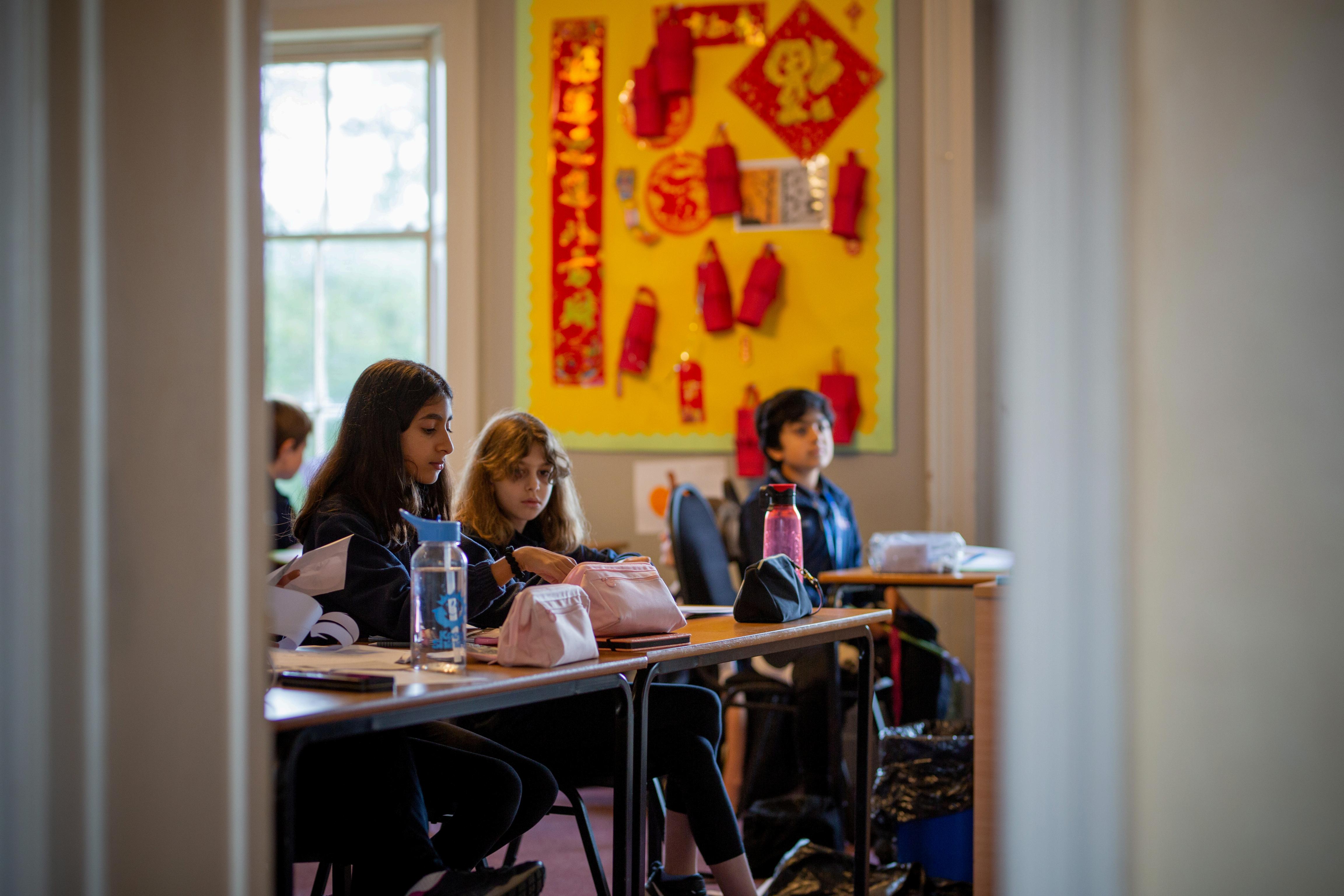

During the Summer term, Year 7 Mandarin students will learn to talk in more detail about their free time, sports, and days of the week, as well as explore young people’s hobbies in China They will also focus on constructing sentences using key sentence structures and investigate Chinese characters by learning radicals and their stories Additionally, students will have the opportunity to learn about and experience Duan Wu Jie (Dragon Boat Festival), exploring its history and traditions, and participating in cultural crafts and storytelling This term will provide an exciting experience, enhancing both their language skills and cultural understanding
How it will be assessed
In addition to having a weekly vocabulary test, students will have an exam after each half term that will include listening, reading, translation, and writing exercises They will also have an oral exam to familiarize themselves with the format of the final exams
Autumn 1
Spring 1
JB1 Ch1 Hi
Counting up to 99 and learning simple characters
Talking about your age
Autumn 2
Learning basic greetings Introducing yourself and others Discovering China
Summer 1
JB1 Ch2 Family and home
Talking about family using measure words
Talking about your pets
JB1 Ch3 Hobbies
Describe what you do in your free time
Talk about what you like doing
Talk about sports
Spring 2
Learning to say dates and months
Finding out about Chinese homes and families
Summer 2
Learn the days of the week
Explore young people’s hobbies in China
Practice Ch1 Greetings and Ch2 Family topics
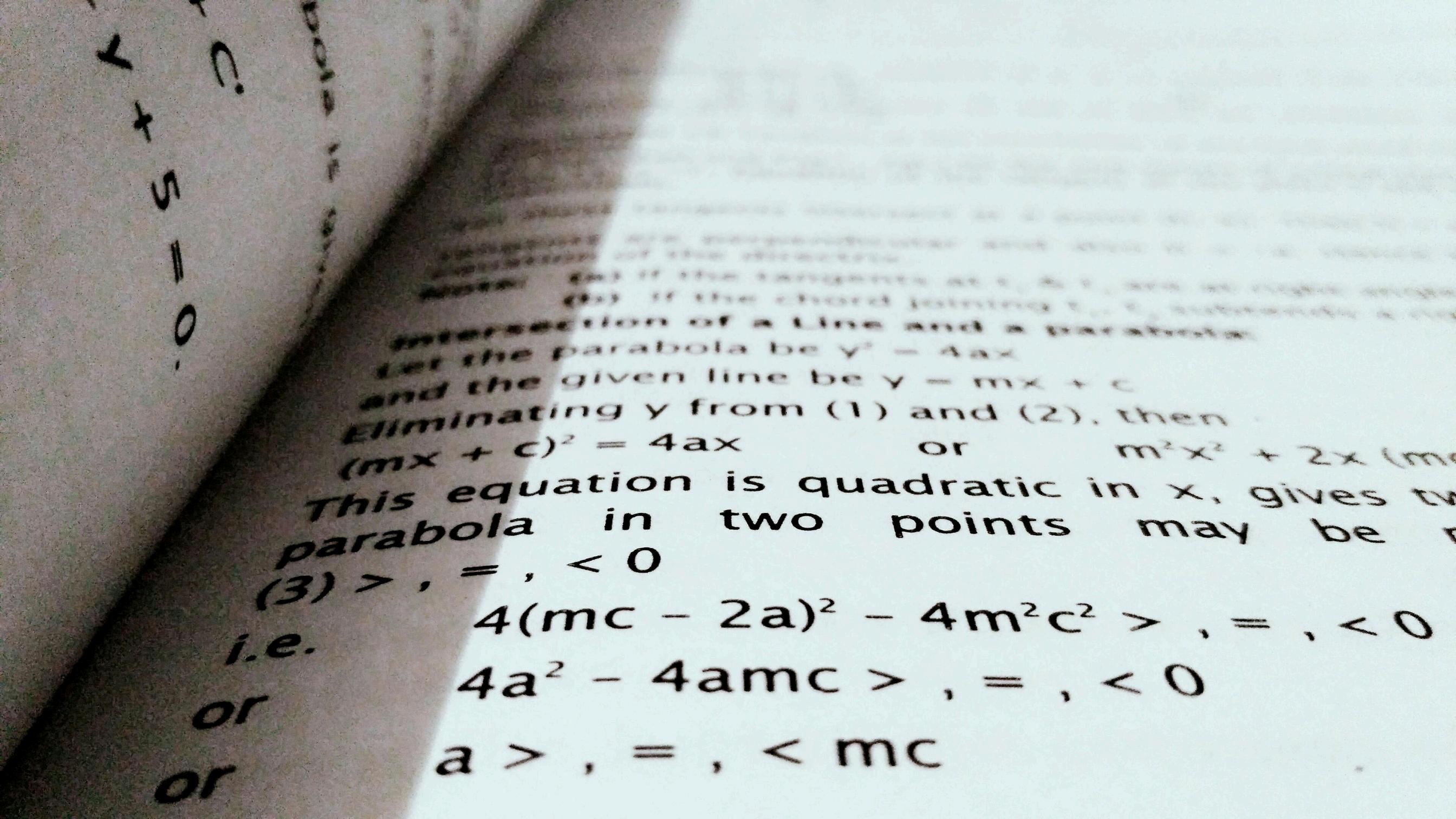

Students will be following the Sparx Maths curriculum – however, due to the attainment of the majority of our students we are now following the Year 8 curriculum This allows us to ensure that homework is perfectly tailored to our lessons in class The Summer curriculum broadens the topics of study for students with an increased focus on algebra and statistics, in particular:
Equations of Lines: finding the equation of a linear function
Inequalities: understanding when inequalities are more suitable than equations and applying inverse operations to solve them
Brackets: understanding the purpose of brackets and how they can be used to help solve equations
Algebraic Fractions: applying prior numerical skills with fractions to algebraic situations
Fractions and Recurring Decimals: knowing that all recurring decimals can be represented by a fraction and how to convert them
Transformations: transforming shapes through translation and reflection only
Finding Unknown Angles: angle in triangle, quadrilaterals, other polygons as well as understanding angles between parallel lines
How it will be assessed
Students will sit two 45 minute assessments at the end of the term – one set by Sparx and one written by our team
we studying?
Autumn 1
Spring 1
Summer 1
Number Sense and Calculations
Perimeter and Area including Circles Coordinates Standard Form
Angles Handling Data and Statistical Diagrams Linear Graphs
Autumn 2
Spring 2
Summer 2
Expressions and Equations Measures
Factors, Multiples and Primes
Venn Diagrams
Nets, Surface Area and Volume of 3D Shapes
Inequalities, Brackets and Algebraic Fractions Recurring Decimals
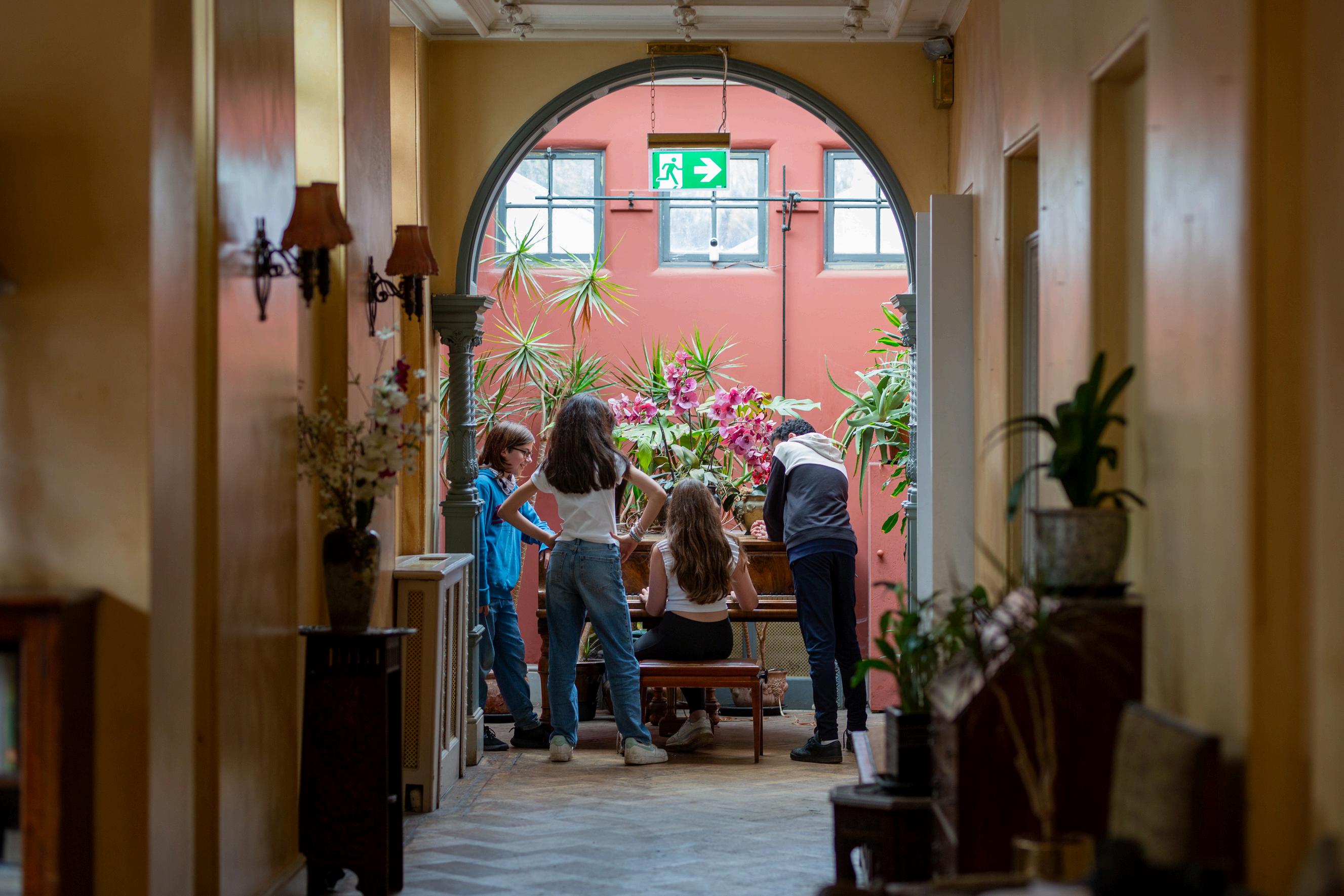

Year 7 Curriculum Overview
Composing music for animated cartoons.
To introduce students to the principles of composing music for animated cartoons, developing their creativity, understanding of musical storytelling, and ability to use basic composition techniques Understand the role of music in cartoons Use musical elements to represent different characters Understand how tempo, dynamics, and harmony create mood and action Learn about "Mickey Mousing" (synchronizing music to animation movements) Plan and create a short composition for an animation Students will also select songs to perform as part of the HCH Arts Shakespeare festival
How it will be assessed
Formative: Participation in discussions, class exercises, and experimentation
Summative: Group composition project, self-evaluation, and peer feedback
Autumn 1
Spring 1
The Elements of Music
Clapping & drumming rhythms
Learning basic keyboard skills
Composing using the elements of music
World Music
Preparing for The Dukes Festival of Arts. Four medleys in different styles. Call and response rhythms
Rhythmic improvisation
The pentatonic scale
Creating pentatonic music compositions
Identify instruments and musical techniques used in classic animations
Autumn 2
Summer 1
Compose short character themes using basic rhythmic and melodic ideas on keyboards or GarageBand. Create a short musical phrase to accompany an emotion or action. Create rhythmic patterns to match a short, animated movement (e.g., footsteps, jumps, falls)
Songs for the HCH Arts Shakespeare Festival
Spring 2
Preparing songs for Christmas concerts
Preparing the Dukes Festival of Arts songs
Identifying the families of the orchestra
Identifying and naming different instruments
Building on keyboard skills through the story of the Nutcracker
Summer 2
Same as Spring 1 and performing own choice song
Hooks and Riffs:
Listening and playing well known rock riffs from the 60s and 70’s
Listening and playing well known synth riffs from the 80’s
Listening and playing modern rock and pop riffs
Performance keyboard assessment of rock, pop and modern riffs
Songs for the HCH Arts Shakespeare Festival
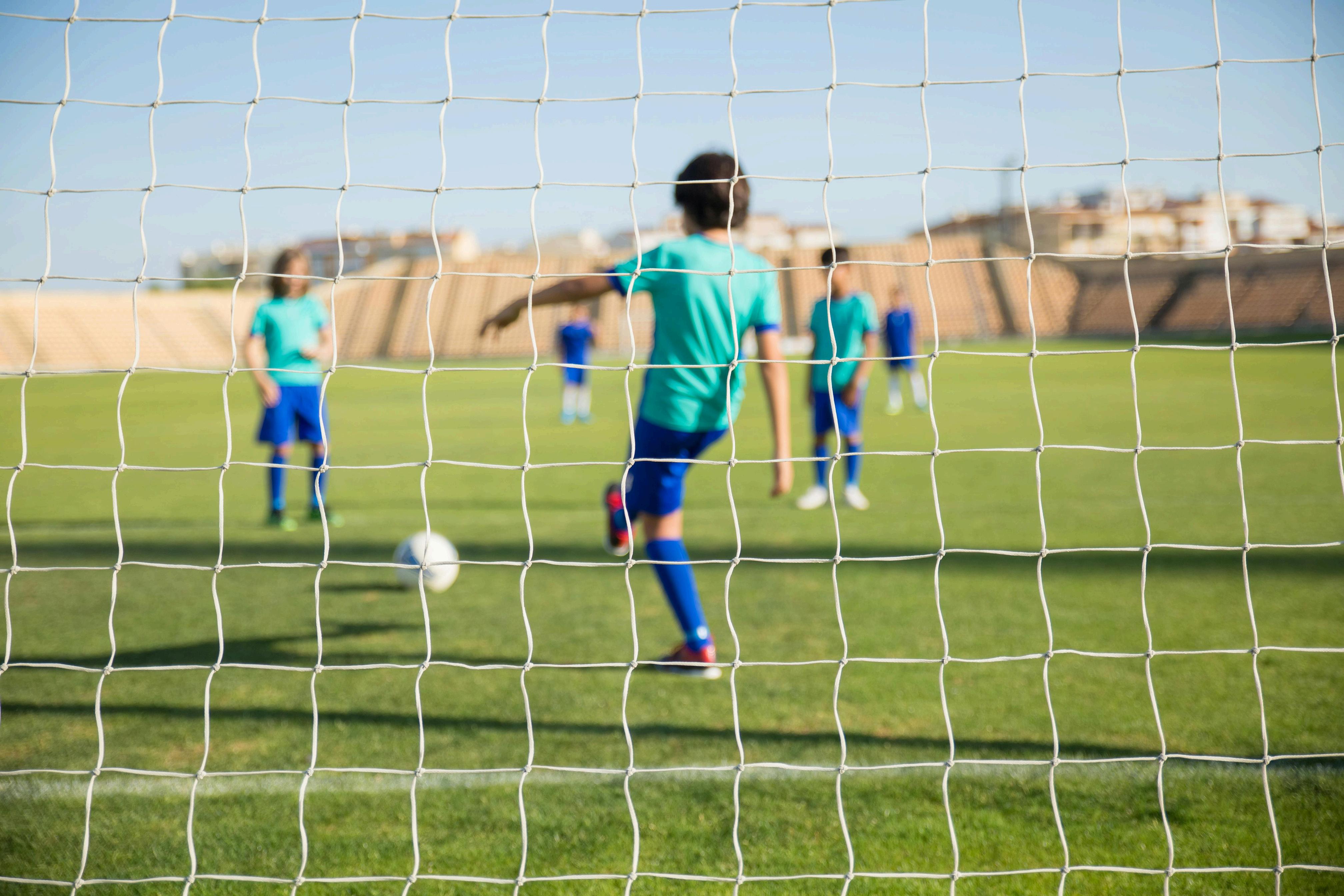

IIn the summer term, Year 7 will be taught off-site Elmbridge Xcel Leisure Complex and Weir Archer Athletics Centre in Kingston so that they can utilise their athletics facilities. All the lessons will prepare the students to compete at their best level in their houses for sports day at the end of June at the Elmbridge Xcel Leisure Complex. We will practice sprints over varying distances, relays, shot put throw, discus throw, javelin throw, long jump, triple jump and high jump. The students will learn through sports-specific warm-ups, and partner/group work to perfect their technique in the athletic event they will perform in. There will be an emphasis on self-improvement and team support to build a culture of resilience and sportsmanship in line with our ethos at the Hampton Court House. At the on-site lessons, students will play rounders. They will explore the techniques in bowling, batting, fielding and base running through small-sided tasks and gameplay.
Speed and Sprinting: Evaluation of acceleration, top speed, and pace maintenance in short sprints.
Endurance and Stamina: Assessment of sustained pacing over long distances and overall cardiovascular fitness.
Strength and Power: Evaluation of muscular strength and explosive power in events like shot put, discus, and jumping.
Technique and Form: Assessment of posture, stride, and efficiency in running, jumping, or throwing for performance and injury prevention.
Batting Technique: Ability to strike the ball, placement, and timing.
Bowling Accuracy: Consistency and effective ball placement by the bowler.
Running and Decision Making: Speed, agility, and smart decisions on the field.
Teamwork and Communication: Collaboration and communication among players.
Term
Autumn
Spring 1
Spring 2
Summer
What are we studying?
Football: Passing, shooting, dribbling, heading, goalkeeping and attack vs defence.
Netball: Passing, shooting, attack vs defence, positions & conditioned games.
Padel tennis: Rules, service, shots, tactics and tournaments.
Badminton: grip, serve, shot selection, in game tactics. Golf: putting, driving, mini golf and house tournament.
Table Tennis: Grip, shots, course management and tactics. Fitness: Fitness knowledge, physical level and improving performance.
Athletics: 4 x 100m relay race, 100m race, 200m race, 400m race, 800m race, shot-put throw, javelin throw, discus throw, long jump, triple jump and high jump.
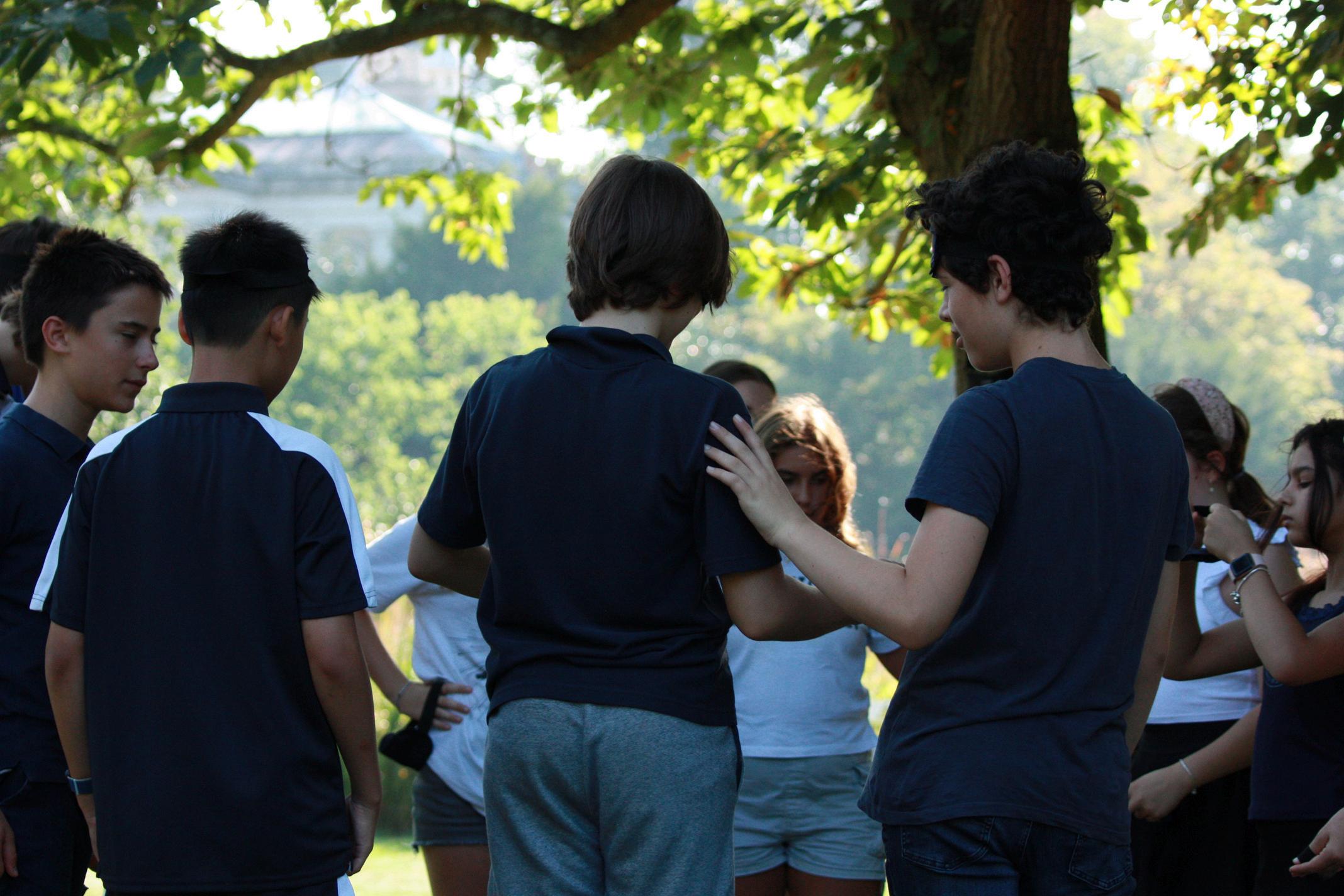

All students from Y7 – 11 will focus on two main topics ‘Healthy Body and Healthy Mind’ Each year group will work in a manner appropriate to the year group, exploring age-appropriate ideas and resources
In summer 1, our PSHE curriculum will focus on cultivating a "Healthy Body," where students will explore the fundamentals of nutrition, exercise, and personal hygiene Through engaging activities and discussions, they'll learn how to make informed choices about their physical health, understand the importance of a balanced diet, and recognise the benefits of regular physical activity Moving into summer 2, the focus will shift to "Healthy Mind " Here, students will delve into topics such as emotional wellbeing, stress management, and the importance of mental health Interactive lessons will equip them with strategies to maintain a healthy mindset, improve their emotional resilience, and understand the value of mindfulness and positive thinking This holistic approach aims to empower students with the knowledge and skills to lead balanced, healthy lives both physically and mentally
We aim to make all PSHE sessions as relevant to the students and their current needs and concerns, therefore out content is changeable, and suggestions and feedback are welcome at any time from students and parents
How
PSHE lessons are predominantly discussion based, with some written tasks for deeper comprehension and application At the end of each half term, the students will complete self-reflection sheets for teachers to monitor understanding and adapt future teaching
Autumn 1
Spring 1
Starting secondary school
Setting and achieving goals
Self esteem
Positive relationships
Friendships
Family relationships
Falling in love
Positive relationships
Summer 1
Healthy Body
Exploring essential nutrition and the benefits of a balanced diet.
Engaging in physical activities and understanding their impact on health.
Learning about personal hygiene and its role in maintaining health.
Autumn 2
Spring 2
Summer 2
An introduction to careers and aspirations
Money management
Diversity, discrimination, kindness and tolerance
Shopping ethically
Puberty
Having a baby
My changing feelings Periods
Healthy Mind
Identifying emotions and effective stress management techniques.
Practicing mindfulness and positive thinking to enhance mental wellbeing. Developing strategies for building resilience and emotional strength.
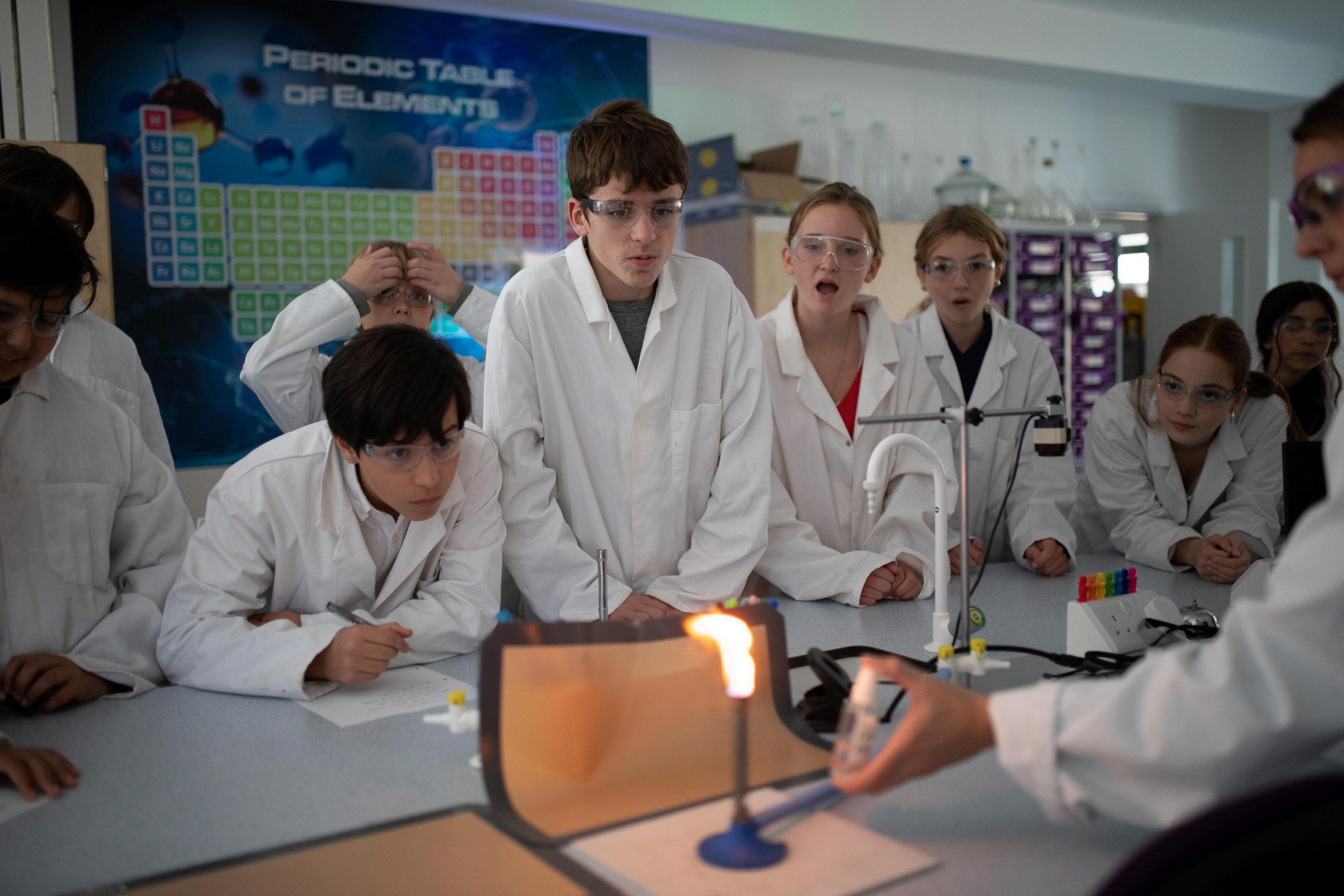

As we move into the final term, Yr7 will continue their studies in Chemistry by continuing with the Acids and Alkali chapter. In Biology students will study reproduction and the reproductive organ systems and in physics we will cover the science of sound and introduce how waves move. We will also look at space and space science, phases of the moon, seasons of the year and how our planet moves through the solar system.
How it will be assessed
Each half term there will be a mini test on the topics covered that half term or term. These will take place during normal lessons. At the end of the year there will be an end of year exam covering all the topics looked at over the whole year. This will be during the school’s assessment week and will be a longer exam.
Autumn 1
Spring 1
Lab Safety and Lab Equipment
Cells
Cells mini test
Elements Acids
Elements and Acids test
Summer 1 Waves Waves test
Autumn 2
Spring 2
Summer 2
Particles Forces
Cells, Particles and Forces test
Body Systems
Elements, Acids, and Body Systems test
Reproduction Space End of Year Exam

During the last term of the academic year of 2024-25, Year 7 will be following the material from ¡Claro! Units 4 and 5: Unit 3 focuses on the theme of house where students will be learning to describe the house where they live and to explain what type of activities they do when they are at home, to practice and reinforce the conjugation of some regular and irregular verbs on the present tense.
Unit 4 focuses the theme of city, where students will be able to describe the city where they live, rad about what other cities can offer and to express what do they do in the city. Finally, they will get an introduction to the near future tense.
For 4 lessons per week:
These students will deepen their knowledge of the Spanish language and develop their cultural awareness, buy will not expand the content of move on to more units
How it will be assessed:
Students will have regular vocabulary tests to guarantee appropriate knowledge and progress, and at the end of each half term they will have a written assessment that will cover reading, listening, grammar, translation and writing.
Term
Autumn 1
Autumn 2
What are we studying? Stream 1
Unit 1: “Me presento” (I introduce myself)
Introduction to the Spanish-speaking countries and understanding the word order and the masculine, feminine, singular and plural words.
Greeting and introducing yourself. And understanding the verb endings.
Learning numbers from 1-31 and learning how to say your age and birthday and other dates.
Introducing the verb tener
Using a variety of question words
Learning colours
Giving basic opinions.
Unit 2: “Mi burbuja” (my bubble)
Counting to 100.
Learn the vocab about the family and using possessive adjectives (my, your, our, etc).
Saying if you have any pets and using describing adjectives.
Describe physical features 9eyes, hair, glasses, etc)
Reinforcement of the verb tener
Introduction to the verbs ser
Describing personalities
What are we studying? Stream 2
Unit 1: “Me presento” (I introduce myself)
Introduction to the Spanish-speaking countries and understanding the word order and the masculine, feminine, singular and plural words.
Greeting and introducing yourself.
Understanding the verb endings and the conjugation of regular verbs.
Learning numbers from 1-100 and learning how to say your age and birthday and other dates.
Introducing the verb tener
Introduction of the verb ser
Using a variety of question words
Learning colours
Giving basic opinions.
Reading and writing activities to expand the new knowledge learnt.
Unit 2: “Mi burbuja” (my bubble)
Counting to 100.
Learn the vocab about the family and using possessive adjectives (my, your, our, etc).
Saying if you have any pets and using describing adjectives.
Describe physical features 9eyes, hair, glasses, etc)
Reinforcement of the verb tener
Reinforcement of to the verb ser
Describing personalities
Learning important adverbs of frequency.

Term
Spring 1
Spring 2
Summer 1
Summer 2
What are we studying? Stream 1
Unit 3: MIs pasatiempos (My hobbies)
Learn how to express what they do on their free time.
Talk about sports and hobbies
Talk about the weather
Learn the verbs jugar (to play) and hacer (to do).
Using comparatives
Talking about some Spanish celebrities and athletes.
Unit 6: En mi “insti” (at my high school)
For this term, we jump to the last unit on the book because it easier to get it related with what we have learnt over the year. Therefore, during HT4 we will learn about
Talking about school subjects, describing teachers, and expression their opinions.
Learning about the different areas and classrooms in the school with the verb hay (there is/are).
Talking about their timetable.
Talking about plans after school and introducing them into the near future. (I am going to...)
Unit 4: Mi casa (My house)
Learning about different types of housing, places to live, rooms in the house and furniture in the bedroom.
Introduction to the verb estar (to be) and the difference with the verb ser (to be)
Prepositions of place
The conditional.
Unit 5: En mi ciudad (In my city)
Learning to describe what is the area they live in, what places can you find in a city.
Learning to give directions.
Comparing London with a Spanish city. Comparing the city with the countryside Revision of all the grammar learnt. Introduction to the past tense
What are we studying? Stream 2
Unit 3: MIs pasatiempos (My hobbies)
Learn how to express what they do on their free time.
Talk about sports and hobbies
Talk about the weather
Learn the verbs jugar (to play) and hacer (to do).
Introduction to the comparatives
Talking about some Spanish celebrities and athletes.
Unit 6: En mi “insti” (at my high school)
For this term, we jump to the last unit on the book because it easier to get it related with what we have learnt over the year. Therefore, during HT4 we will learn about
Talking about school subjects, describing teachers, and expression their opinions.
Learning about the different areas and classrooms in the school with the verb hay (there is/are).
Talking about their timetable.
Talking about plans after school and introducing them into the near future. (I am going to...)
Unit 4: Mi casa (My house)
Learning about different types of housing, places to live, rooms in the house and furniture in the bedroom.
Introduction to the verb estar (to be) and the difference with the verb ser (to be)
Prepositions of place
The conditional.
Unit 5: En mi ciudad (In my city)
Learning to describe what is the area they live in, what places can you find in a city.
Learning to give directions.
Comparing London with a Spanish city.
Comparing the city with the countryside
Revision of all the grammar learnt.
